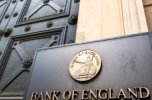- Date
- 10 August 2022
Bank of England's Independence
Bank of England's Independence
By Jake Rickman |
What do you need to know this week?
Last week, Liz Truss, the current frontrunner in the Tory leadership bid to replace Boris Johnson as the nation’s prime minister, announced her intent to “review” the Bank of England’s “remit” should she win the premiership race, alleging that the UK’s central bank has failed to deliver on its job to control inflation by not raising interest rates quick enough.
The remit Truss refers to goes back to 1997, when under the Labour government the Bank of England was made independent from HM Treasury and given broad powers to control price stability in the market, provided its policies align with the government’s target rate of inflation. Since then, the Bank of England has had full control of the nation’s monetary policy, meaning it can set the base interest rate at which it lends to other banks, as well as purchase government and certain corporate bonds in what is known as quantitative easing.
Until 2021, the Bank of England has met the target rate, which has been 2% since 2003. But following pandemic lockdowns and the resultant supply chain crises and energy price spikes, inflation around the world began to climb, and Truss, along with other Tory MPs, thinks the Bank of England and its policy board are at least partly to blame.
While it is not entirely clear what a review of the Bank’s remit would entail, her announcement has since attracted the attention of market commentators and journalists, with some echoing Truss’s sentiment and others, including her rival Rishi Sunak, dismissing her proposal as pointless.
Why is this important for your interviews?
Truss’s criticism of the Bank of England has a strong whiff of politics, something that might therefore initially seem outside the remit of an interview. However, her comments do touch on broader economic questions at the intersection of policy and politics. Namely, how effective has the Bank of England’s supposed independence been? How might reforms to its status affect the market?
Given how important monetary policy is to the market, it is entirely feasible that an interviewer might ask for your opinion, especially if the conversation veers onto topics of inflation and interest rate hikes. As with any question put to you to gauge your commercial awareness, it is more important that the interviewer understands how you arrive at your answer than the answer itself. Therefore, it might be helpful to acquaint yourself with both sides of the debate.
To Truss’s credit, for over a year many analysts were pointing to signs that inflation was entrenched in the economy while the Bank of England (along with other central banks) argued it was “transitory”, thereby delaying rate rises. Some go as far as to argue that the past decade of interest rates at zero combined with aggressive quantitive easing is to blame for the current market conditions.
As a counterpoint, it is not clear in the first instance if raising rates earlier would have stopped inflation, given many of its causes are outside of the Bank of England’s control (e.g. supply chains, Brexit, war in Ukraine, and energy prices). In other words, the UK’s fragile economic health may be owed to more than just monetary policy, which means seizing control of the monetary policy is insufficient to fix the problems at best, and a distraction at worst if it means not looking at fiscal policy (taxation). Somewhat separately is the argument that stripping the Bank of England of its independence would increase uncertainty in the market if monetary policy was more directly influenced by the government’s political agenda.

